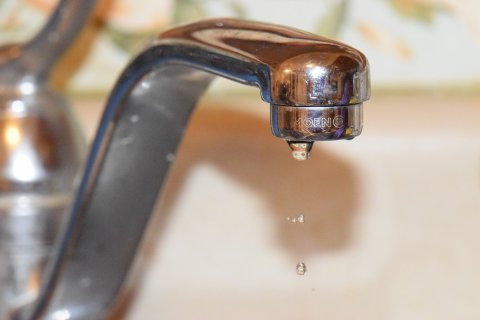
14 July 2023
Local people in the Wealden district of East Sussex have been blamed by South East Water for a series of water outages. We invited local campaigner Linda Valins to be a guest blogger and tell us more.
No water at Christmas
To begin, let’s travel back in time to December 2022. I am standing in the queue at my bank in Tunbridge Wells. Behind me is a young mother on the brink of tears. She’s been without running water for almost a week and she can’t cope. I am shocked. “Is there anything I can do? Perhaps I can phone your MP?” She breaks down and says it is no use.
When I get home I can’t stop thinking about her family and others, left high and dry by South East Water (SEW) for eight days. We are told it is due to frozen and burst pipes. But I wonder how other countries manage to deliver water without disruption of supply in far more extreme weather?
Then on Sunday 11 June 2023, without any warning, thousands of Wealden households are left inexplicably without water. And it goes on for over a week for many of us. SEW blames residents, home working, and weather. But is this crisis really down to us?
Campaign group Save Wealden from Over-development Team (SWOT) is very suspicious of this sudden lack of water in north Wealden. We feel there are four factors that are really behind these disruptions.
Privatisation of water companies
SEW is no longer a public service; it’s a profit-seeking enterprise. Since Margaret Thatcher sold them off in 1989, the water companies have together paid out £72bn in shareholder dividends and racked up £60bn in debt. SEW has lined the pockets of its overseas shareholders and pays its Chief Executive David Hinton £307,000 a year, while our water bills have increased by 11% this April. They’ve put private profit before public good at every turn, and now they’re pointing the finger at us when we’re left without water.
England is almost the only European country to have adopted such an economic model. Most shares are held not by individuals but by large corporations, now often overseas, and profits are routed there. Why should shareholders based in Australia and Canada care about investing in infrastructure to prevent leaks in England? Which brings me onto the next reason...
Insufficient investment
When water was sold off, we were promised that the private sector would fund new infrastructure developments. Money raised from investors and the stock exchange, as opposed to provided by government, was supposed to fund the modernisation of our water system and help build reservoirs. The reality? The last reservoir built in the UK was over 30 years ago, our Victorian pipes are leaking away 20% of treated water nationally, and inadequate storm overflows mean our rivers are regularly polluted with raw sewage. New infrastructure is almost entirely paid from customer bills, not by investors. And the dividends paid to those investors has left water companies with a mountain of debt which has drastically reduced investment.
System Overload
To compound the issue, when greenfield sites come forward for the development of new homes, there is often no additional provision for extra water demands on our already buckling systems. Water companies have a legal duty to provide water to these new developments, even in areas where the water supply is under pressure… and decades of underinvestment have left many areas in this position.
Climate Change
Not only is England experiencing more droughts and near droughts, but also more periods of intense rainfall resulting in flooding. Yet SEW underutilises reservoirs. Their figures suggest that water use in the South East has gone up dramatically in the hot weather, and they use that to conveniently blame the disruption on us. But if the infrastructure were in good order then it would be able to cope with every change in temperature. Under privatisation, shareholders’ interests have been prioritised at every turn, regulation has failed to meaningfully intervene, and little has been done to bring our water system into the 21st century. As the impacts of the climate crisis are felt, we need a publicly accountable water system, shaped by local people, which meets our needs, not those of private shareholders.
From where I stand, the above four reasons have created the Perfect Storm, leaving me and thousands of others with no access to water in our homes on a regular basis. Now is the time to hold SEW to account and take back our precious water.

Photo credit: PumpkinSky, CC BY-SA 4.0, https://commons.wikimedia.org/w/index.php?curid=57722880

Comments
Antony Perry replied on Permalink
Time for change.....when will the English wake up....if ever.
Add new comment